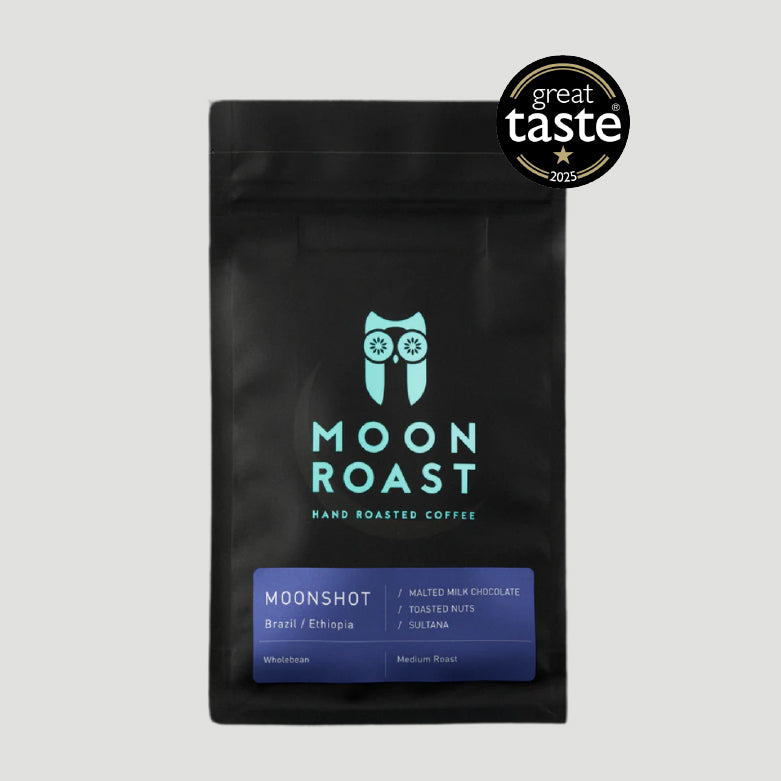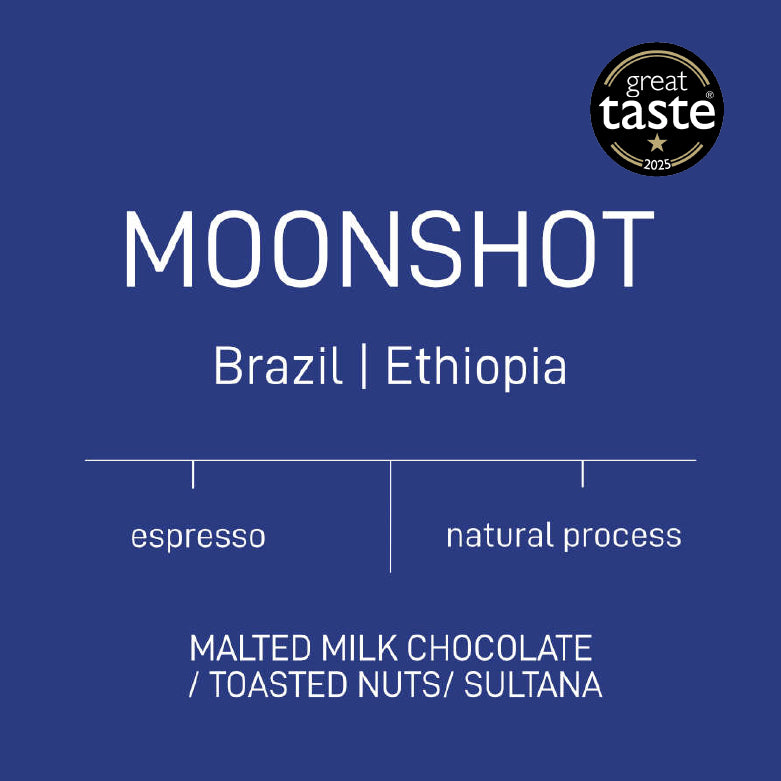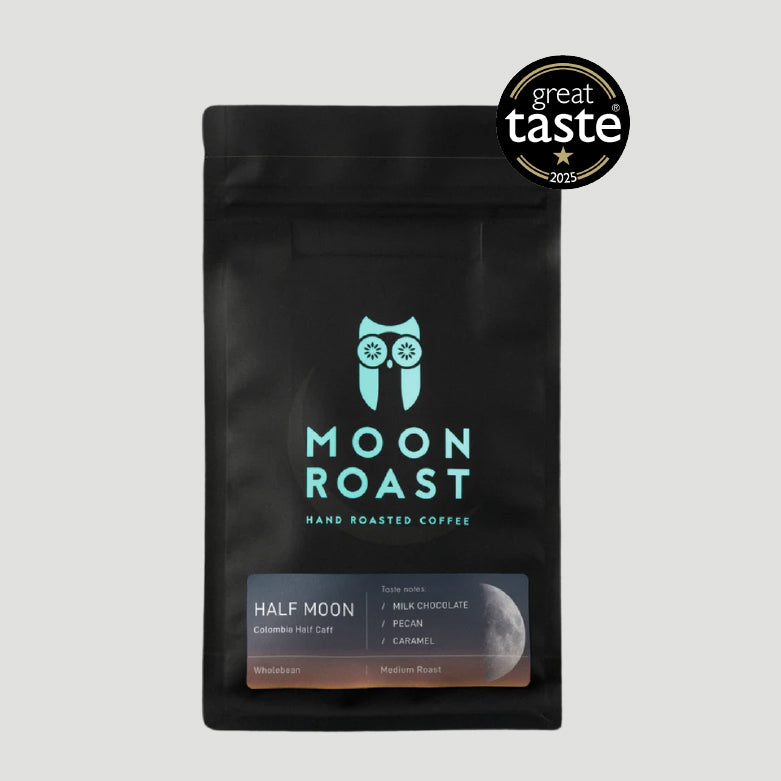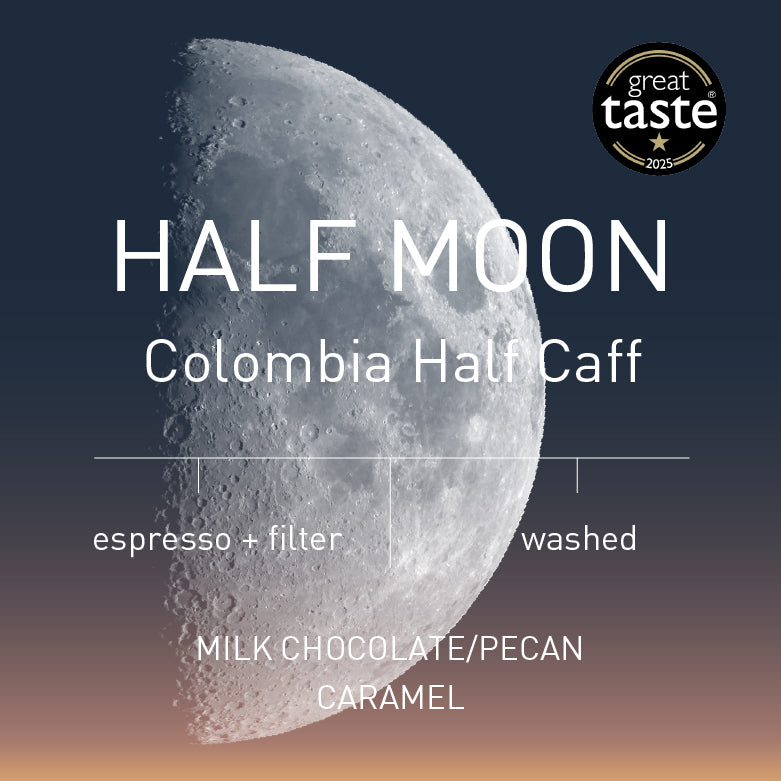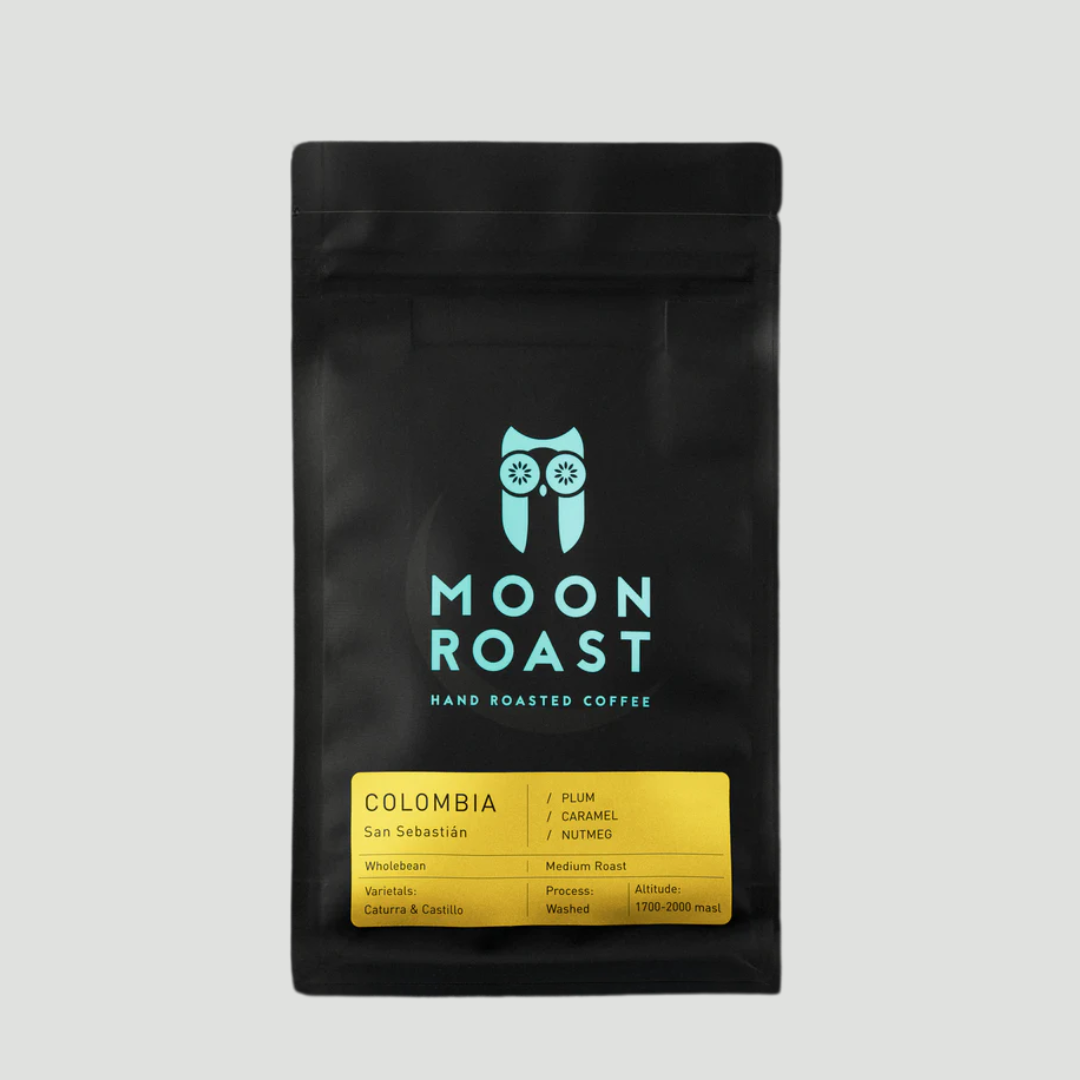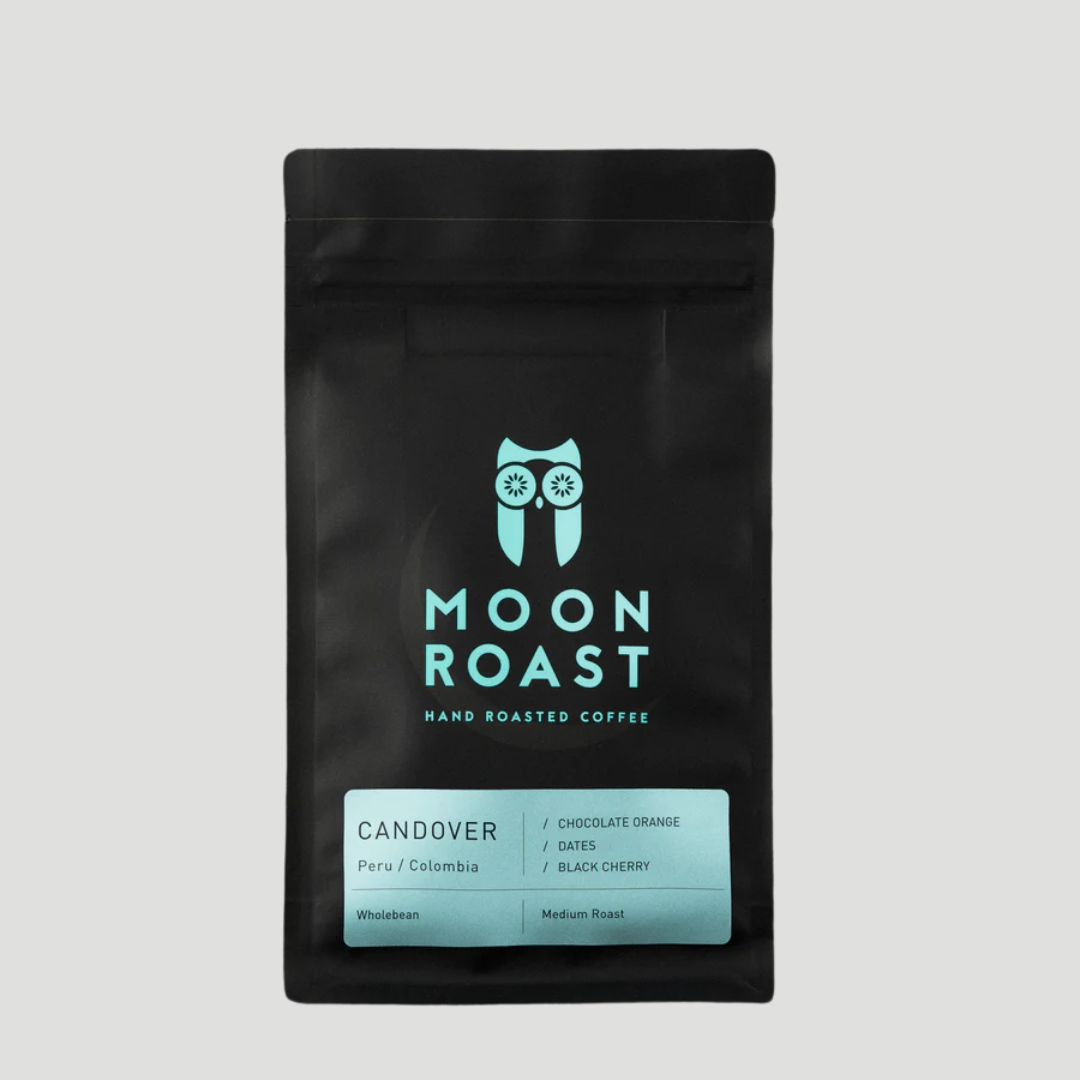Should you rest your coffee before brewing?

One of the questions we’re asked most often at Moon Roast is: “Should I rest my coffee before using it?”
To help clear up the myths, we spoke to our head roasters to explain the science behind roasting, resting, and brewing - so you can get the most out of every cup.
We’ve been hand-roasting specialty coffee to order for over 10 years and with 17 Great Taste Awards under our belt, we know a thing or two about brewing a truly delicious cup. Most of our coffees are roasted for next-day dispatch, ensuring you receive beans that are as fresh as possible. And if you look on the back of your bag, you’ll find the roast date- a simple guide to when to start brewing and how long to let your coffee rest.
The Science of Freshly Roasted Coffee
During roasting, green coffee beans go through a remarkable transformation. As they’re heated, they release moisture and change colour - first yellowing, then browning as sugars and proteins interact. At this stage, they absorb heat (an endothermic reaction) before expanding, releasing moisture and pressure.
This is when the famous first crack happens - the audible “pop” that signals the Maillard reaction in action. Sugars and amino acids interact, leading to caramelisation and the complex flavour development coffee lovers crave.
But there’s another important thing happening carbon dioxide (CO₂) is building up inside the beans. Especially toward the end of the roast, a significant amount of CO₂ gets trapped. This gas needs time to escape before you brew otherwise, it can disrupt extraction and negatively impact flavour.

Why Resting Matters
When coffee rests, it degasses, slowly releasing that trapped CO₂.
Brew too soon after roasting and the gas escapes too rapidly as hot water hits the grounds. This can lead to uneven extraction, resulting in sharp, sour or unbalanced flavours.
By letting your coffee rest, you give it time to settle and develop its flavour. You’ll also notice more predictable brewing results - stable shot times, smoother extraction and a cup that truly reflects the roaster’s craft.
Our Resting Recommendations
Every brew method has its sweet spot. Here’s what our roasters suggest:
- Espresso blends: Rest for 7–10 days after the roast date.
- Filter coffees: Rest for 3–5 days after the roast date.
- Cafetiere (French press): Rest for 4–6 days after the roast date.
These are simply starting points – the best way to discover your preference is to experiment. Try your coffee on day 3, then again on day 7 and day 10, and notice how the flavours evolve and settle.
Freshness tip: Resting is about when flavours taste best, not about expiry. Ground coffee is best enjoyed within 4 weeks, while whole bean coffee stays fresh for up to 3 months when stored correctly
Storage Tips for Maximum Freshness
Even after resting, how you store your coffee makes all the difference.
- Keep it sealed and stored in a cool, dry place - away from heat sources like ovens, and moisture-heavy spots like fridges.
- Whole bean lovers: We recommend using our Atmos flasks to keep beans fresh for longer.
- Ground coffee drinkers: Always reseal the bag tightly after use and store it in a cool, dark cupboard.
A quick note: around 40% of the gas escapes in the first 24 hours and degassing slows down after that. You don’t need to wait weeks to brew - just enough to let the flavours bloom.
The Takeaway
Resting your coffee isn’t a gimmick - it’s an essential step in unlocking its full potential. By understanding the roasting process, respecting the rest period and fine-tuning your brew method, you can enjoy exceptional coffee at home, every single time.
So next time your fresh Moon Roast coffee arrives, check the roast date, give it a little time to rest and taste the difference for yourself.



